As a child, I was always enthralled by toy commercials, especially, those for action figures. They all had a similar format of children manipulating dolls within little plastic sets (usually replicas of castles, caves, and dungeons that may or may not be sold separately). There was always a cutaway of a slack-jawed kid in disbelief at how awesome the figures were. As a child, these carefully constructed scenes felt immersive and fun and made me want the toy of course! That was the point after all.
I think a lot of us have special relationships with toys. Boomers were the first generation of children from the burgeoning (and since obsolete) middle class to benefit from their parents’ disposable income. This combined with the development of cheap production methods and the advent of plastic and rubber, saw an entire industry born specifically targeted to youths. It started with magazine ads and quickly moved over to the TV screen where Saturday morning cartoons became launching off points for products marketed directly to kids. More often than not those products were toys.
I believe Boomers wanted for their children what they pined for as youths themselves. Toys, toys, and more toys. As a child, I spent countless hours after school and on the weekends playing with my X-Men and Power Rangers figurines. There’s a familiar, sentimental feeling even now as I recall those early formative years with my collection of play items. A feeling successfully captured in Toy Story.
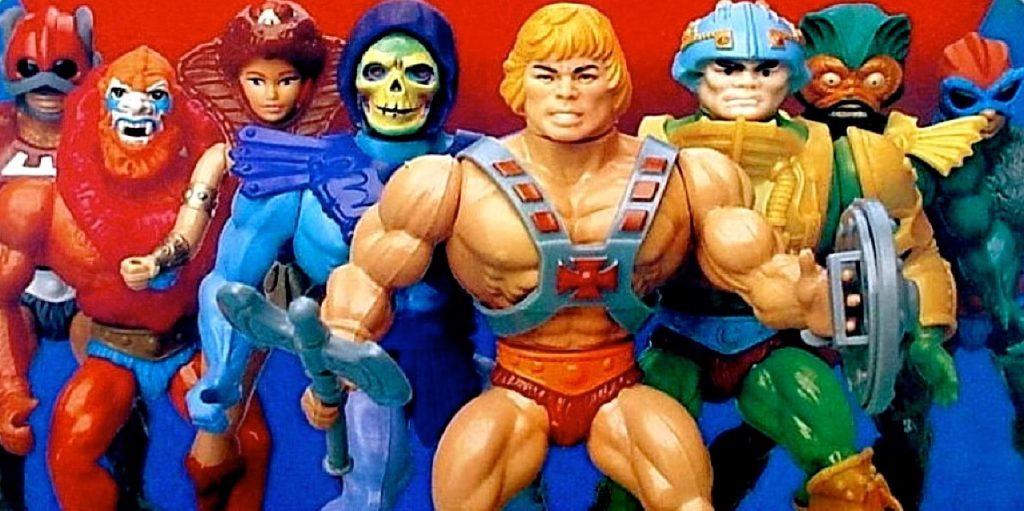
Which brings me to Barbie. This movie could have easily been a bust. It could have turned into a poor, shallow, uninteresting dud. Or been a mess of an IP (intellectual property) adapted for the screen. There’s a reason you don’t remember titles like GI Joe and Power Rangers. Then there are those you wish you could forget like the Transformers sequels and Masters of the Universe (that’s right. A deep dive and one that I actually kind of appreciate in its own way).
This is different. Written by Greta Gerwig and Noah Baumbach, Barbie is a thought-provoking, highly original film. It acts somewhat like a trojan horse: taking a popular brand and infusing it with deeper ideas. It tackles heavier topics in a way that is not burdensome for the audience or preachy in intent. There’s a lightness throughout, both in color and tone, that simply makes serious subjects like toxic masculinity, objectification of women, and the drab effects of commercialism easier to digest and comprehend.
This movie is also a spectacle. A high budget visual feast for the eyes. Barbie is filled with big dance numbers, large colorful set pieces, bright costumes, beautiful people, and catchy original songs. In a way, it’s a throwback to the old musicals from Hollywood’s past like Singin’ in the Rain, The Wizard of Oz and An American in Paris. While those films largely lacked the irony embedded in Barbie, they were at their core monumental cinematic events with size, ambition, and visual flare. Much of it being live-action (like the aforementioned toy commercials).
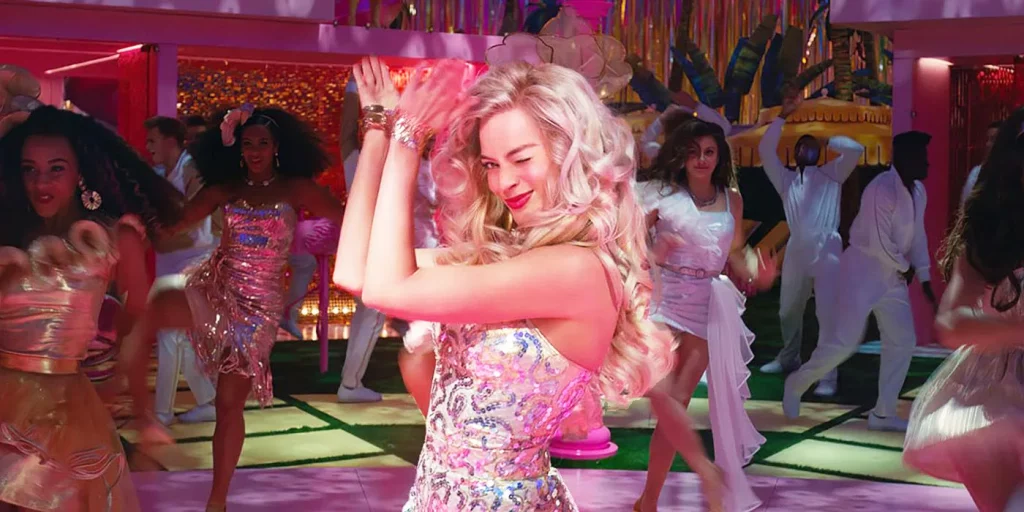
Like Oppenheimer, but unique in its own way, Barbie invites everyone to the adult table while not alienating a younger audience. It’s not an easy feat. The fact that both movies premiered on the same weekend leaves me, like many others, flabbergasted.
The story, in and of itself, is sort of weighty when you put it in text. Margot Robbie plays ‘Stereotypical Barbie.’ A perfectly content inhabitant of the female-run Barbie Land whos days consist of fun at the beach, flirty yet bland conversations with Ken (Ryan Gosling), who is along with many other Kens, desperate for Barbie’s attention and approval, and dance parties with other Barbies, like Lawyer Barbie, President Barbie (Issa Rae) and Doctor Barbie.
Things change when Barbie starts to think about death. Soon her entire routine is fractured by this realization. Her existential crisis leads her to Weird Barbie (Kate McKinnon), a disfigured Barbie with chopped off hair and color marker on her face. She advises Stereotypical Barbie to venture to the real world to find the girl who plays with her.
So Barbie ventures off in a pink convertible not realizing that Ken is hiding in the backseat. After discovering him, she agrees to bring him along. Soon they arrive at Venice Beach. While Ken is impressed by the assertive, self-reliant behavior he observes in men, Barbie is alarmed by the way she is treated.
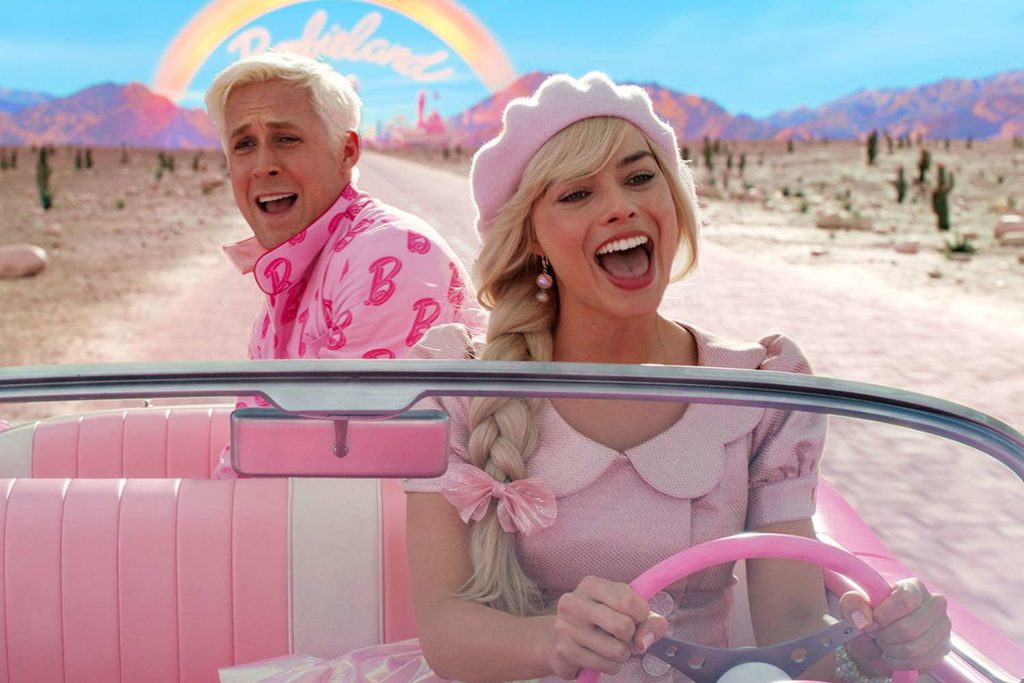
They split up. Barbie goes to a local school to find the girl that plays with her. The girl, Sasha (Ariana Greenblatt), criticizes Barbie for her impossible standards. Corporate executives at Mattel led by the CEO (Will Ferrell) are aware of Barbie’s presence in the real world. They apprehend her and attempt to put her back in a box but Barbie escapes.
We soon discover that Sasha’s mother, Gloria (America Ferrera), is an employee at Mattel and is the one responsible for the upheaval in Barbie’s life. She manages to pick up Barbie and bring her back to Barbie Land with Will Ferrell and his lackeys on their tail.
Meanwhile Ken is in awe of the real world where he encounters men in various authoritative roles. He returns to Barbie Land to make some changes. He convinces other Kens to take over positions once assumed by the Barbies, relegating the women to such subservient roles as maids and on again-off again girlfriends. With the help of Gloria and Sasha, Stereotypical Barbie tries to take back control of Barbie Land and restore the female Barbies to their rightful place.
The movie clocks in at under 2 hours. An impressive feat in 2023 where almost everything feels a tad too long. An economic, well cut story is worthy of praise and that is what Barbie is.
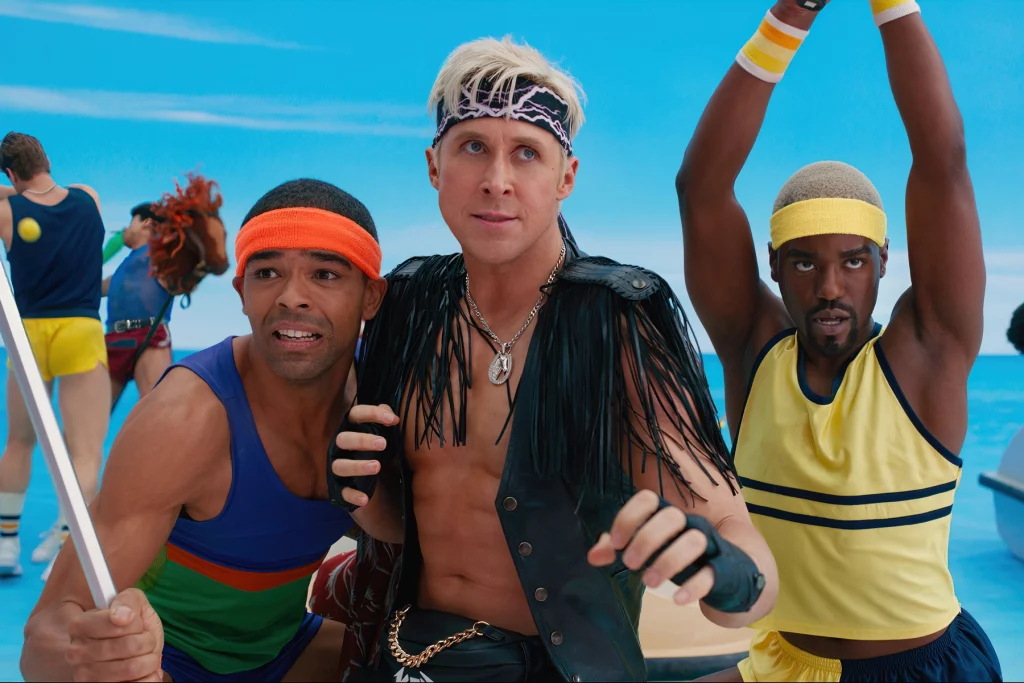
Barbie Land has an Asian Ken and a Black Barbie (not their official names obviously). The “real-world women” are Gloria and Sasha who are Latina women. The representation doesn’t feel cheap but rather authentic and natural.
I was most impressed by the acting. It felt like each actor really understood their role in the story and was immersed in telling it. I speak especially of Barbie (Margot Robbie), Ken (Ryan Gosling), and Gloria (America Ferrera).
Some have attempted to critique Barbie as just a variation on a cheap ploy to sell more dolls. I say is let’s appreciate this movie for what it’s trying to say. Before it multiplies and dissolves into some hollow, meaningless film franchise for Mattel.
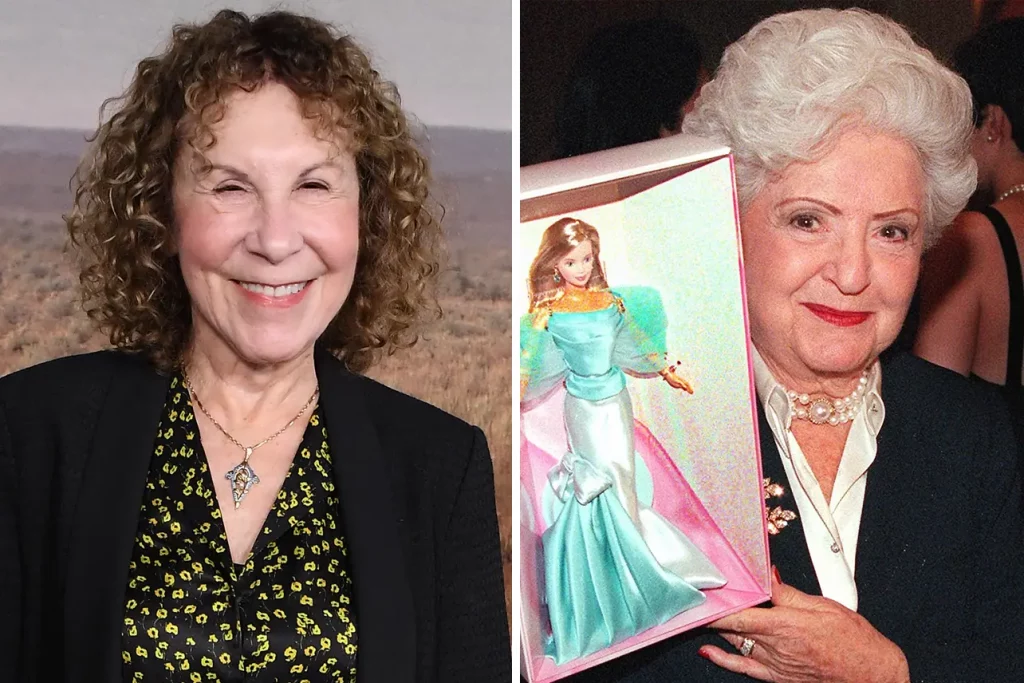
I began this piece by discussing my own early infatuation with dolls. Many children across multiple generations can relate to my experience. It’s the reason why Barbie made 1 billion dollars in just 17 days. The character has been jutting out of children’s toy chests for over 60 years.
You should see Barbie. Even if it means breaking up with your girlfriend or boyfriend. It’s an entertaining, meaningful piece of filmmaking with a heartfelt message. For something made out of plastic, there’s humanity underneath.
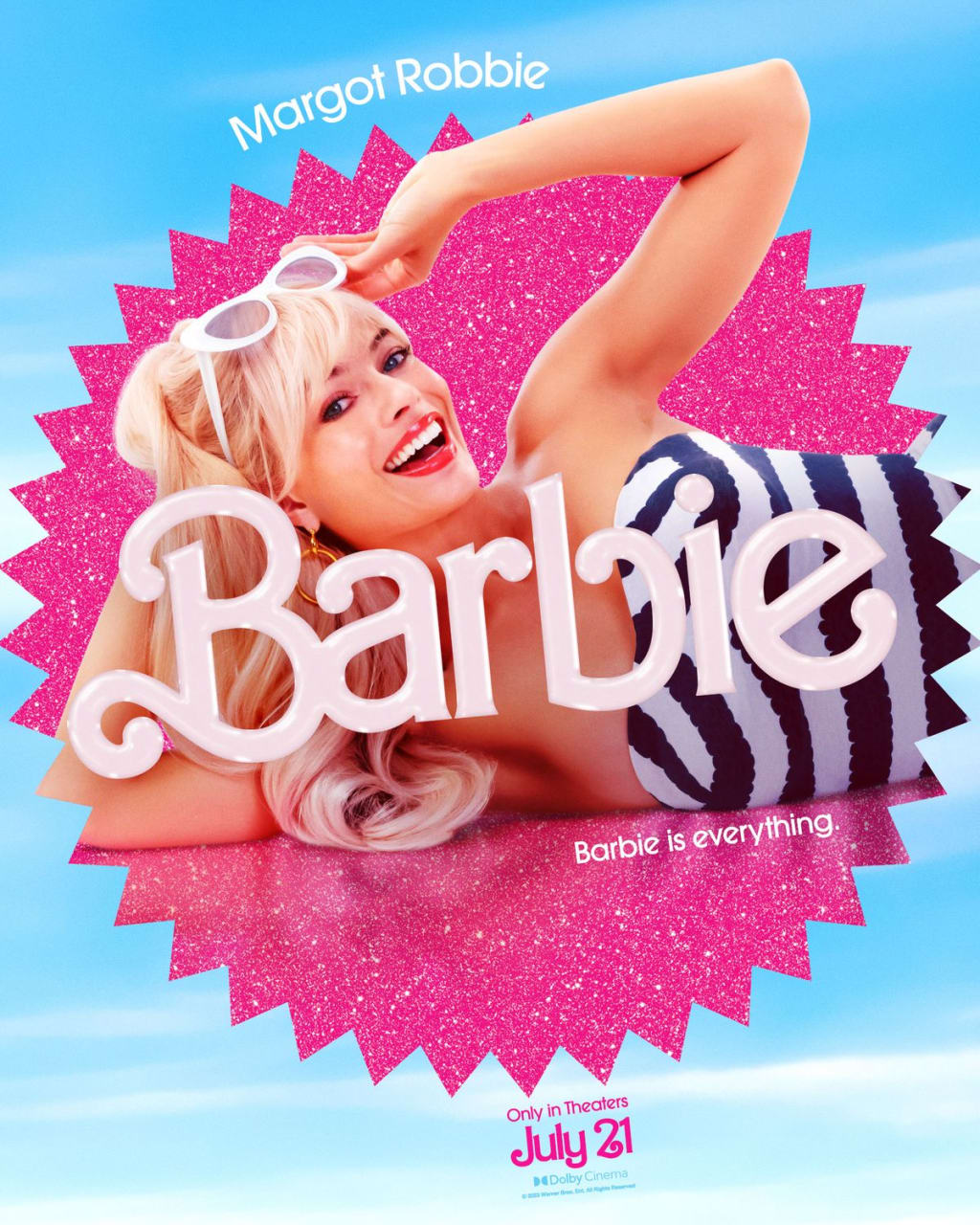
Comments